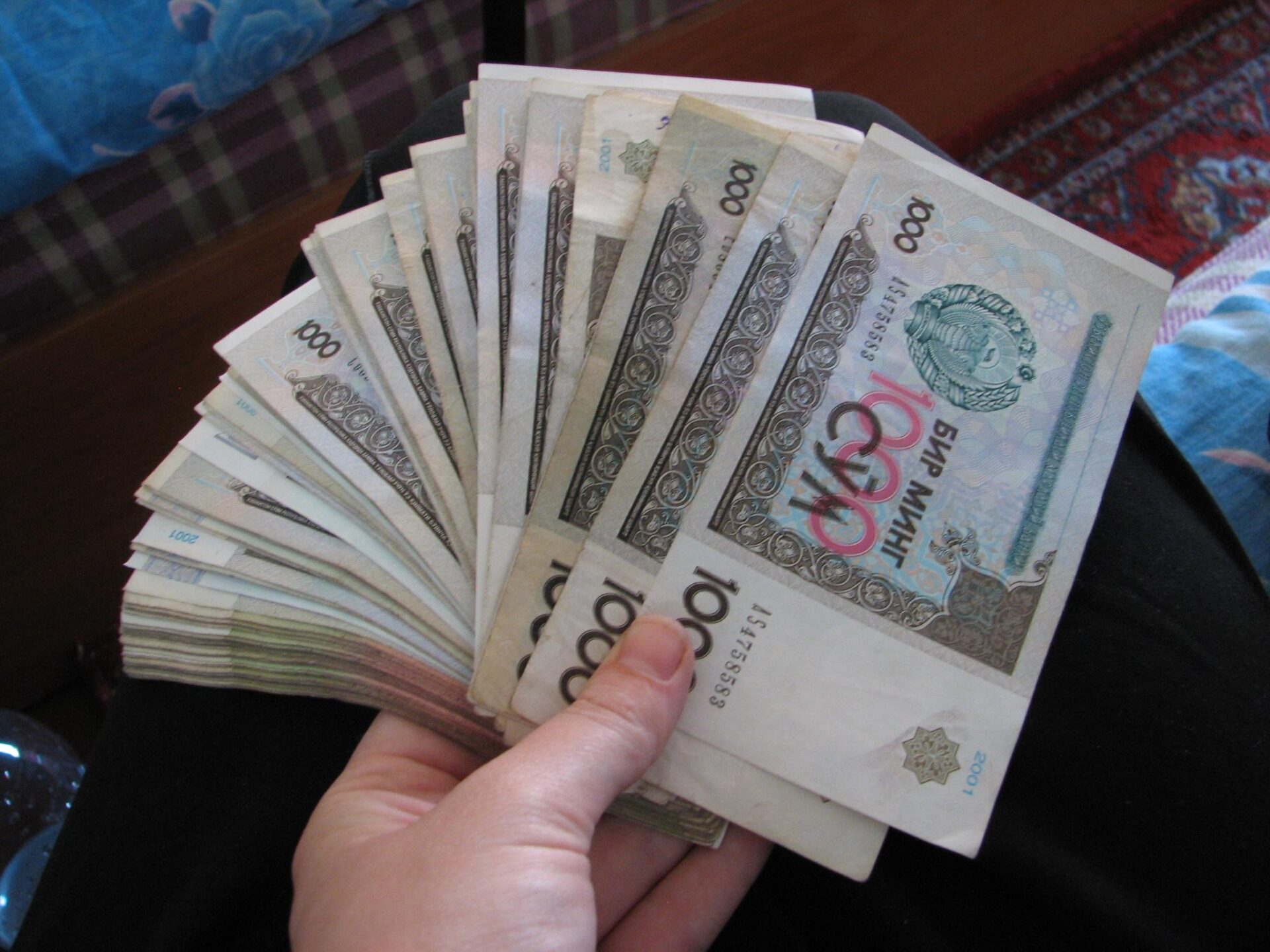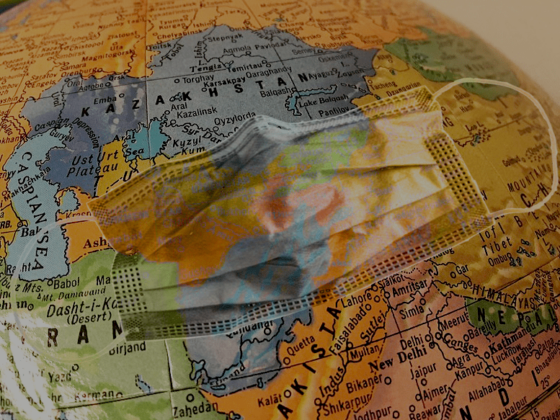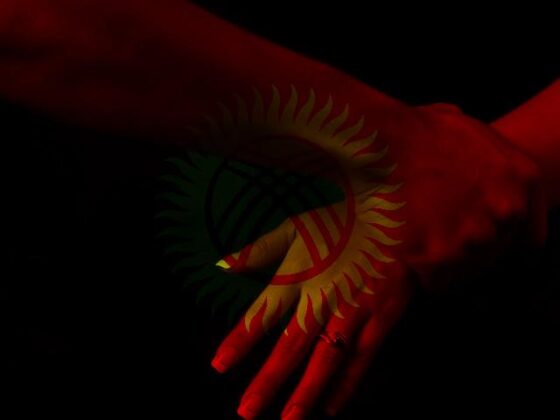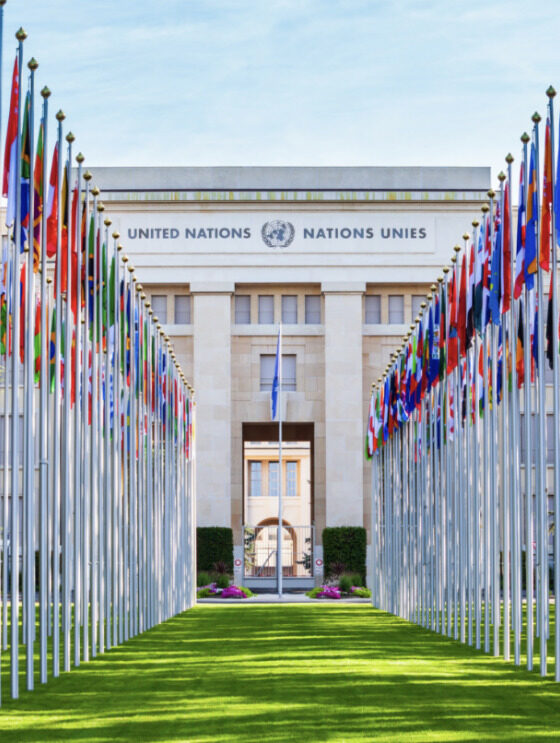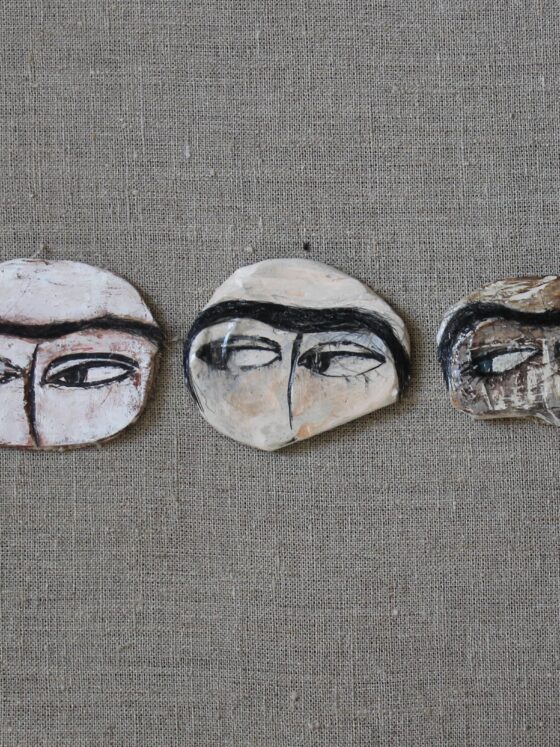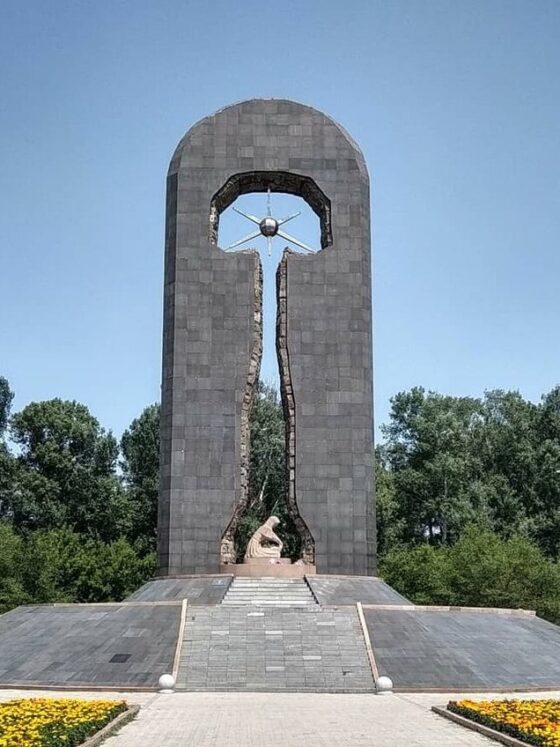Main Photo by Patrick Barry

By Bekzod Zakirov
Bekzod Zakirovis a PhD scholar and research assistant at Graduate School of Public Policy, The University of Tokyo, Japan. His research interest mainly focuses on the political economy of authoritarianism, democratization and the politics of market reforms in post-Soviet countries, including Russia, Kazakhstan and Uzbekistan. He was a visiting scholar at the Center for the Study of Democracy at Westminster University in London and at the Institute for European, Russian and Eurasian Studies at George Washington University, Washington DC. He writes analytical pieces at The Diplomat and in local newspaper kun.uz.
2020 did not start well for Uzbekistan. The country had just launched its modernization bid to integrate itself into the global economy after its new president, Shavkat Mirziyoyev, replaced long-time strongman Islam Karimov in 2016. The coronavirus pandemic, COVID-19, that spread across the globe, costing as many as 546,000 lives as of July, became a stress test on the ability of the new leadership to navigate the challenges of globalization. While dealing with the socio-economic consequences of the health crisis, the regime faced another disaster when the wall of a newly built dam catastrophically collapsed near the town of Sardoba, forcing nearly 70,000 and 5,400 residents of Uzbekistan and the neighboring Kazakhstan out of their shelters, respectively. Yet, simultaneously facing these dual crises, the political leadership in Uzbekistan did not flounder. The government’s effective actions, although they came at a huge economic cost, helped contain the virus from spreading wildly. In the case of the dam collapse, the government’s immediate response through active engagement with the affected people saved its reputation in the eyes of citizens. The competence of leadership in crisis management led many to believe that the overarching reforms that the new regime launched a few years ago were already proving their efficacy. It appears that the jubilant leadership, having passed the worst, should not have much problem moving toward loosening the lockdown measures in Uzbekistan for immediate economic recovery.
However, it is too early to assume that government’s public diplomacy and socio-economic assistance will be able to adequately tackle the challenges ahead. While giving credit to the government’s relative success in crisis management, I argue here that the true cost of the pandemic to political stability will emerge after the quarantines end; the real challenge awaiting the regime is the impending economic hardship caused by the pandemic and the way it will further exacerbate existing social tensions. Unless addressed with meaningful political reform, the impending economic hardship and social tension may erode the political legitimacy that the new regime relies on to sustain its authoritarian rule.
The Emergency Response
As COVID-19 rapidly made its way into the heart of Central Asia, very few people expected Uzbekistan could handle a health crisis of such magnitude with its underfunded healthcare system, which is usually beset by corruption. According to the Global Health Security Index, the government health system scored only 34.3 on a scale of 100. Yet, to everyone’s surprise, Uzbekistan, in comparison to others in the region, managed to contain the damaging consequences of both crises through prompt actions.
Although the leaders initially was slow in assessing the risk of the virus, soon after the first case of infection was found, Uzbekistan took a myriad of emergency measures to prevent the rapid spread of infection throughout the country. The government effectively mobilized a huge number of medical personnel and law enforcement to immediately enforce the strict “stay home” lockdown policy. Surprisingly, the government willingly abandoned the Chernobyl mindset of hiding the truth and established various lines of communication by which to inform the people with daily updates about the virus. It effectively mobilized the media, including TV channels, bloggers and spiritual leaders as a means to encourage compliance with the quarantine rules.
Although many still consider the numbers of infections as well as deaths suspicious, the government’s relative transparency in communication marked a radical break from previous regime. In the meantime, the leadership was preoccupied with introducing a wide range of economic support packages to mitigate the negative impact of the pandemic on socio-economic stability. A myriad of urgent measures were implemented to ensure adequate support for domestic businesses, including an immediate set-up of anti-crisis fund of $1 billion. However, in the face of inadequate budget, the president signed a decree that allowed the government to borrow long-term loans of around $3.1 billion from multiple international financial institutions.
In the midst of the pandemic, the government met with the incident of the Sardoba dam collapse, which, wiping out multiple cities in both Uzbekistan and Kazakhstan, almost doubled the burden on Uzbekistan’s already strained budget. To avoid any popular resentment in this tense situation, President Shavkat Mirziyoyev flew to the scene immediately after the disaster to meet with affected residents, promising that “no one will be left uncared for”. Massive charity campaigns that civil society groups organized to provide the affected people money, food and clothes, eased the government’s budgetary distress amid COVID-19 crisis. Also, thanks to the President Mirziyoyev’s quick manoeuvring of soft diplomacy with the leaders of Kazakhstan, the government avoided the devolution of the country’s recently repaired relationship with Nur-Sultan.
However, these effective measures—accompanied as they were by a myriad of governance failures and human rights violations—did not necessarily mean that people held or will continue to hold positive attitudes towards the government’s performance during the pandemic. The official rhetoric that depicted the pandemic as an “external enemy” beyond their control may have convinced some people to temporarily return to the natural economy—the economy of self-sufficiency with available means—but people’s collective self-sacrifice is likely to be short-lived. Once confronted with the anxieties of real life stretching beyond the current health crisis, Uzbek society is likely to develop grievances over access to health, decent jobs and livelihoods, which, adding to existing mistrust, sense of injustice and corruption might erode the political legitimacy—and political stability—of the regime.
Political Legitimacy and Regime Stability
All political regimes, regardless of type, must establish their political legitimacy—the justification for their rule—if they are to maintain long-term power.[1] Jean-Marc Coicaud defines political legitimacy as “the governed recognizing the right of the governors to lead and, to a certain extent, their entitlement to the perks of power”.[2] Multiple research studies, in fact, show that the legitimizing discourses of stability, economic achievement and security that authoritarian leaders often draw on can serve as powerful tools to maintain real stability for authoritarian regimes. However, these regimes can remain dangerously vulnerable to the loss of this legitimacy, especially during the crises of economic downturn, war or pandemic.[3] The government that succeeds in preventing the spread of infection during the pandemic but fails to lift people out of the poverty after the crisis will have a hard time legitimizing its claim to power in the eyes of its citizens.
Having faced dual crises in 2020 with impending consequences yet to come, the current regime in Uzbekistan runs a similar risk of losing its political legitimacy, as its predecessor did. Exploiting turbulent times to leverage a peaceful transition, the Karimov regime emphasized the relative economic success, political stability, improved social welfare and nation-building promised as part of their lofty concept of the “Uzbek Path” to buttress its claim to power.[4] People thus came to associate national independence and security with the personality of Islam Karimov, accepting him as a national hero capable of defending the county against its enemies.[5] However, the actual reality of the regime—relying on a corrupt system in which the elites exploit state institutions to enrich themselves at the expense of ordinary people—radically diverged from its rhetoric of Musaffo Osmon (serene sky) over the years. Having lost the legitimacy in the eyes of its people, the Karimov regime clung only to fear and utopian propaganda to sustain political stability.
Inheriting the legacy of years-long grievances, dissatisfaction and a moribund economy, the new political leadership under Shavkat Mirziyoyev crafted a policy of economic reform to gain popular support in 2016. Not long after ascending to power, Mirziyoyev promised to bridge the gap between reality and rhetoric and improve people’s lives by modernizing the economy, overhauling governance, fighting corruption and creating a space for free-speech. The discernible changes in society that came as a result of the reforms he passed gave people hope for a bright future under the new regime.
Yet, Mirziyoyev’s authoritarian modernization failed to uproot the deeply engrained corrupt practices that still dominate Uzbekistan’s institutions and economy. Even worse, the exalted reforms aggravated existing social tensions of people towards the corrupt elite, triggering demonstrations in response to property expropriations and demolitions. Such demonstrations were unthinkable during previous regime. Those who were immersed in both the physical and online Uzbek community could fairly discern that feelings toward the regime were mixed and that beliefs that the reform only benefited the elite were widespread. Here I argue that the COVID-19 crisis may further exacerbate these tensions, putting the regime’s ability to sustain political stability through performances of legitimacy under a serious question.
COVID-19 and Political Stability
Although the challenge of the COVID-19 pandemic is global in its scope, the way it tests the capacity of individual governments depends on the nature of their particular socio-economic arrangements. The pandemic’s devastating consequences in Uzbekistan may shake the legitimacy of the current leadership, which will undermine the stability of their rule in two interconnected, important ways: exacerbating economic hardship and its impact on existing social tensions.
The most important aspect of the COVID-19 crisis in Uzbekistan concerns the huge economic losses the country will sustain due to the fall in commodity prices, which has created and will create unprecedented pressure on the state budget. Although GDP predictions give reason for hope, the crisis hit Uzbekistan during a period of prolonged economic hardship bequeathed to the state by the previous regime. Over the years, the economy of Uzbekistan has become highly dependent on its neighbors for trade and employment. Due to the lack of diversity in the country’s exports and production, the COVID-19 crisis is having a huge toll on the main drivers of its economy, including the oil and mineral exports, service sector and labor remittance.
A major problem for the economy is the drop in exports of raw materials, a major source of foreign exchange, due to falling demand. According to JSC Uzbekneftegaz, annual gas deliveries from Uzbekistan to China accounted for about 10 billion cubic meters of gas in 2019. However, in March 2020, PetroChina, issuing a force majeure notice, started to cut gas imports from Uzbekistan, which dropped 38.4% in the first quarter. The total loss in gas exports due to the fall in demand is estimated at $500–600 million. Further, Forbes reported that Uzbekistan may face a drop in foreign exchange earnings of $2–4 billion if oil prices remain low and the national currency of Russia and Kazakhstan continues to fall. Other spheres of the economy that are expected to suffer include the trade of consumer goods and tourism. Due to the transport restrictions between countries, Uzbekistan recorded not only a decline in its export of consumer goods to neighboring countries but in the number of incoming tourists visiting from abroad.
Another economic problem posed by the COVID-19 pandemic concerns money transfers from Uzbek migrant workers living in neighboring countries for work, who would otherwise be sending money home, offering another means of covering the foreign trade deficit. Earlier, the proceeds from money transfers had reached a record high of $6.6 billion over five years. A large portion of money transfers—70%—come from Russia, where around 2.1 million Uzbek migrants work in different sectors. However, the spread of the virus and the plunge in the value of the ruble further exacerbated the suffering of Uzbek migrant workers in Russia. According to a World Bank report, the remittances are expected to drop by 50%, which might cost the government an extra $1–2 billion of foreign exchange earnings.
The impact of COVID-19 will also exacerbate government debt. Unable to address the pandemic with state coffers already drained by corruption, Uzbekistan’s government had to take economic assistance in the form of loans from multiple financial institutions, although the received amount accounts for a very small amount to rescue the economy. According to IMF estimates, the debt-to-GDP ratio of Uzbekistan rose to 36.9% in 2020, reaching $25.1 billion as of April. Although the country can rely on its reserves, the impact of the accumulating debt will last for years, reducing the fiscal space needed for economic recovery.
The tightening of global financial markets may also destabilize the economy. Even before the pandemic, Uzbekistan’s government had accumulated a high level of dollarized debt—that is, debt financed by falling export revenues. Due to the rise in external debt, S&P Global Ratings downgraded Uzbekistan’s status from stable to negative, stating concerns that “rapid debt accumulation reduce[s] [the] country’s fiscal flexibility.” The debt issue, which first started to trouble Uzbek officials in 2019, has become a frequently discussed subject of popular concern. In fact, the national debt is dealing a serious blow to the current regime’s legitimizing rhetoric of buyuk kelajak (great future) since indebtedness is traditionally regarded in Uzbek society as a sign of weakness. It is for this reason that the government recently held a discussion with the media to subdue public concern. In short, the external shock of the pandemic—aggravating Uzbekistan’s failing economy—is likely to destabilize political stability within the country, eroding the promise of economic prosperity that the current regime relies on to legitimize its authoritarian rule.
COVID-19-related economic hardship will unavoidably bring social and political consequences. The major challenge for the current regime is the increasing social tensions that result from the deterioration of people’s lives. The national lockdown that halted domestic trade, consumption and investment cost up to 40% of people their jobs, depressing already tough economic conditions. According to World Bank experts, 15% of the population in Uzbekistan makes less than $3.2 per day to begin with. The fact that a large portion of the population works in informal sectors of economy makes them more vulnerable to the crisis; informality not only makes the businesses harder to adapt but also to qualify for assistance, putting them at higher risk of falling into poverty.
Another source of social tension that haunts the regime is the influx of returning labor migrants who had previously worked abroad to support their families back. Having already lost their jobs or facing bleak future in countries hit hard by the pandemic, some 39,000 migrants had returned to Uzbekistan by May 2020, while many more remain trapped in limbo, directing their frustrations at an incompetent government.
The economic future of low-income people is further threatened by the government’s fiscal incapacity to distribute financial assistance to those who faced substantial losses in income and revenue. Due to their strained budget, mounting debt and fear of an inflationary spiral, the government explicitly rejected the idea of direct cash distribution to the population, proposed by experts multiple times. Instead, the government opted for temporary measures to help the most needy—measures in which it hugely relied on the humanitarianism of civil society, especially the businesses, both volunteered and coerced. The sustainability of the government’s economic assistance to the population is unclear as the question of austerity from external debt looms large.
The social tensions enflamed by COVID-19 fall against a backdrop of an already fractured social contract between the new regime in Uzbekistan and its people. Although people have seen the changes over the past few years, they have also shown dissatisfaction towards certain aspects of economic reform that failed to improve their lives, as usually voiced by bloggers. A few mentions from a long list of critiques include the existence of entrenched interests around economic monopolies, increasing protectionism and tariffs, and commercializing new laws to fill in the strained budget.
The regime’s urbanization policy, however—which gave rise to illegal property seizures, demolitions and evictions—angered people. The executers of these policies were new governors, khokims, who then became targets for discussion in social media. Since the beginning of Mirziyoyev’s presidency, people have been very disappointed with some khokims who recklessly abused their expanded power, leading in turn to the erosion of domestic stability in certain regions.
Do the economic reforms the regime launched a few years ago give hope for post-pandemic economic restructuring in Uzbekistan? Experts seem optimistic that the ongoing reforms will help the country to rapidly recover after COVID-19 through the influx of investment. However, it is too early to put confidence in such prophecy as new patterns, particularly decoupling, reshoring and de-globalization, are re-emerging in global economic order that come with impacts on developing countries. Even if the current global economic order—in which abundant capital chases opportunities in capital-hungry countries—remains unchanged, the fundamental problems facing the regime in Uzbekistan are likely to make the government’s attempts at economic recovery futile.
First, the regime is unlikely to attract the capital investment it seeks due to the lack of credible commitment it has displayed over the past years. The government’s recent desperate move to target the wealth of Uzbek entrepreneurial expatriates demonstrates the impotency of its attempts to tap foreign capital. Second, economic recovery is inhibited by the presence of powerful clans. Their rush to devour the country’s leftover resources when the government attempts to “fire sale” its assets amid fiscal pressure will bring further damage to the economy. The contraction of the state budget following the redistribution of resources will compromise the government’s ability to manage post-pandemic restructuring. Finally, the political leadership, already facing a decline in their legitimacy, is going to have a hard time bringing the economy out of this challenging phase.
Conclusion
The dual crises of the COVID-19 pandemic and Uzbekistan’s dam collapse has provided a stress test for the new leadership in Uzbekistan. The collapse of energy prices, the disruption of both domestic and international trade, the sudden drop in money transfers by migrant workers and the loss of income earnings of ordinary people have already resulted in an unprecedented social and economic crisis. The shrinking resources and economic pains as a result will exacerbate existing social tensions and pose a huge challenge to the reform agenda of economic development that the current regime relies on to legitimize its rule and sustain political stability. Given that the impending hardships will get worse with the second wave of pandemic, the current leadership runs the risk of ending their honeymoon period in the first term of Mirziyoyev’s presidency. Although these social tensions are unlikely to catalyze massive street protests that would endanger social order, the regime might face a crisis of legitimacy and may resort to repression once more like its predecessor.
[1] Finer, S.E. The History of Government from the Earliest Times. Oxford: Oxford University Press, 1999.
[2] Coicaud, Jean-Marc. “Legitimacy, across borders and over time.” Fault lines of international legitimacy (2010): 17-29.
[3] Pepinsky, Thomas B. Economic crises and the breakdown of authoritarian regimes: Indonesia and Malaysia in comparative perspective. Cambridge: Cambridge University Press, 2009.
[4] Omelicheva, Mariya Y. “Authoritarian legitimation: assessing discourse of legitimacy in Kazakhstan and Uzbekistan.” Central Asian Survey 35, no.4 (2016): 481-500.
[5] March, Andrew F. “State ideology and the legitimation of authoritarianism: The case of post-Soviet Uzbekistan.” Journal of Political Ideologies 8, no.2 (2003): 209-232.

